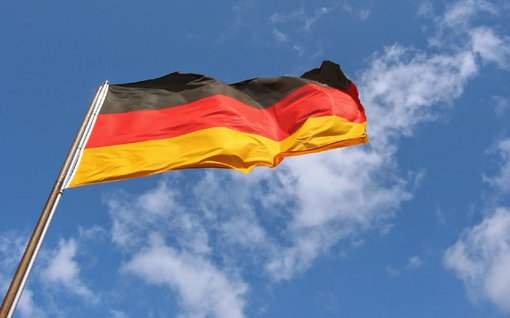What Languages Are Spoken in Germany?

Germany's official language is German, spoken by approximately 95% of its citizens. However, due to the high number of international students and immigrants in recent years, Germans speak more than one language.
The economic powerhouse of Europe, Germany, attracts many immigrants who choose to learn the language. 67% of Germans speak at least one foreign language, while 27% speak two.
Germany’s Official Language
Standard German is the official language of Germany and the most widely spoken language in all of Germany. The standard German language developed over a long time, first starting to develop in the 8th century. German is spoken by about 95 million local speakers and around 85 million non-native speakers worldwide, which is also the third most widespread language on Earth.
A separate German-speaking community exists in neighboring countries such as Austria, Switzerland, Luxembourg / Belgium / Lichtenstein. It is common to use standard German in writing because it is taught at schools and in the German media. However, every region in Germany has its dialect, so when people talk, they usually use their local dialect.
German Dialects
Each valley had a dialect when Germany was a collection of villages and towns. According to some linguists, there may be as many as 250 dialects of German.
Here are some important German dialects:
- High or Standard German (Hochdeutsch). High German originates from Southern Germany, where the Alps and highlands are. In the modern day, this is the standard German you know. Hochdeutsch is the dialect taught in schools. The actors likely speak this dialect if you watch German television or the news.
- Low German (Plattdeutsch). Despite its close similarities to Hochdeutsch in pronunciation, Low German originates in the northern part of Germany and the Netherlands. The written forms of the two dialects are identical. Due to a declining number of speakers, Plattdeutsch is on the verge of disappearing.
- Bavarian German (Bayerisch). Bavaria is in Southeastern Germany, and Bayerisch is very similar to standard German when written but differs in the pronunciation of vowels. Bavaria has a majority of people who are proficient in reading, writing, and understanding the language. As a result, standard German or Hochdeutsch has been nicknamed Schriftdeutsch, meaning Written German in this region because they rarely get the chance to speak it.
- The Berlin Dialect (Berlinerisch). The capital of Germany, Berlin, has grown into an international hub due to its rich history and vibrant art scene. Because of the modernization of Berlin, which has made it a global city, only a few people live there their entire lives, so the accent that represents the Berlin dialect is slowly disappearing.
- Swiss German (Schwiizerdütsch). Since French and Italian are official languages in Switzerland, Swiss German differs greatly from other German dialects. The neighboring languages certainly made their mark on the pronunciation. Still, even German speakers from different regions need help understanding the Swiss-German dialect.
- Austrian German (Österreichisches Deutsch). Although Austrian German mostly follows the same grammar, it has its unique vocabulary. Think of it as American and British English, where Americans say chips, and Brits say crisps, but both accents understand each other.
Which German Dialect Should I Learn?
The best way to learn a German dialect is to learn standard German. All your teaching materials and resources will teach Hochdeutsch. Everyone understands standard German, so that's what you should study. However, if you live in a particular place, you'll definitely pick up local accents and vocabulary.
Related: Best Language Courses in Germany.
What Are the Most Spoken Languages in Germany?
Germany’s biggest cities, Berlin, Frankfurt, Cologne, and Hamburg are home to a mix of multilingual residents.
Here are the most spoken languages in Germany:
- English. English is the official language of business in Germany, with 56% of the population speaking it. Due to its growing popularity, more German businesses have officially adopted English as their primary language. English has long been taught as a second language in many schools, but its popularity as a second language for young people has recently overtaken French.
- French. Approximately 15% of the population speaks French, one of the school's most popular second languages. Because of the close relationship between Germany and France, many young Germans travel to the French countryside after school. Many French people also move to Berlin and other parts of Germany to work and embrace their neighbor's international culture.
- Russian. Russia is the third largest migrant group in Germany. After the Soviet Union collapsed in 1991, there was a large influx of Russians to Europe, with many settling in Germany. 5% of the population speaks Russian.
- Turkish. Approximately 4 million Turkish people live in Germany. However, those who speak Turkish come from a diverse range of nationalities. Turkish is spoken by 1.8% of the population. Many communities in Southeastern Europe speak Turkish, including Greece, Macedonia, Bosnia Herzegovina, Bulgaria, Macedonia, Romania, and Cyprus.
Frequently Asked Questions
Can I Speak English In Germany?
Yes, you can. However, most expats experience a high level of language barriers due to their limited German proficiency.
Is German Easy To Learn?
German has many straightforward rules, so it is quite easy to learn. Since English and German are the same language family, you might surprise yourself at how much you pick up without even trying.
How Long Does It Take To Learn German?
Learning German will take approximately 30 weeks or 750 classroom hours. Of course, the exact duration of learning German will depend on your proficiency level and commitment to learning.
Can I Get a Job in Germany Without Speaking German?
Yes, you can. Foreigners looking for work in tech startups or digital departments have a better chance of finding jobs in Germany without speaking German.
Can I Learn German for Free?
Yes, you can. There are many websites and applications that help people learn German in game-like lessons.
Also read: The Oldest College in Every US State (MAP).
Related Articles

The higher education system in Germany is renowned globally for its academic caliber. This sector, regulated mainly at the state level, is well-established and recognized worldwide. Germany is a largely popular country for international students who want to pursue their qualifications in its higher education institutions. With almost 400,000 international students across its universities, Germany has reached academic expertise all ambitious students aim to pursue.

Thousands of international students look towards Germany when pursuing higher education qualifications abroad. Studying abroad has its challenges, but it is all worth it at the end of the day, especially if you choose Germany as a study destination. The German higher education sector offers numerous advantages and opportunities to students through a wide range of degree programs in some of the world’s highest-ranked universities.

Germany is an outstanding country, especially for those interested in pursuing their higher education qualifications in Germany’s educational institutions. Its higher education system is excellent, the study programs and degrees are comprehensive and efficient, and the study environment and university facilities offer a great deal of comfort. The cost of living and studying in Germany is quite affordable for the most part, considering that Germany largely offers tuition-free education.